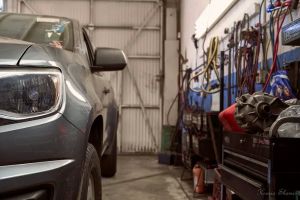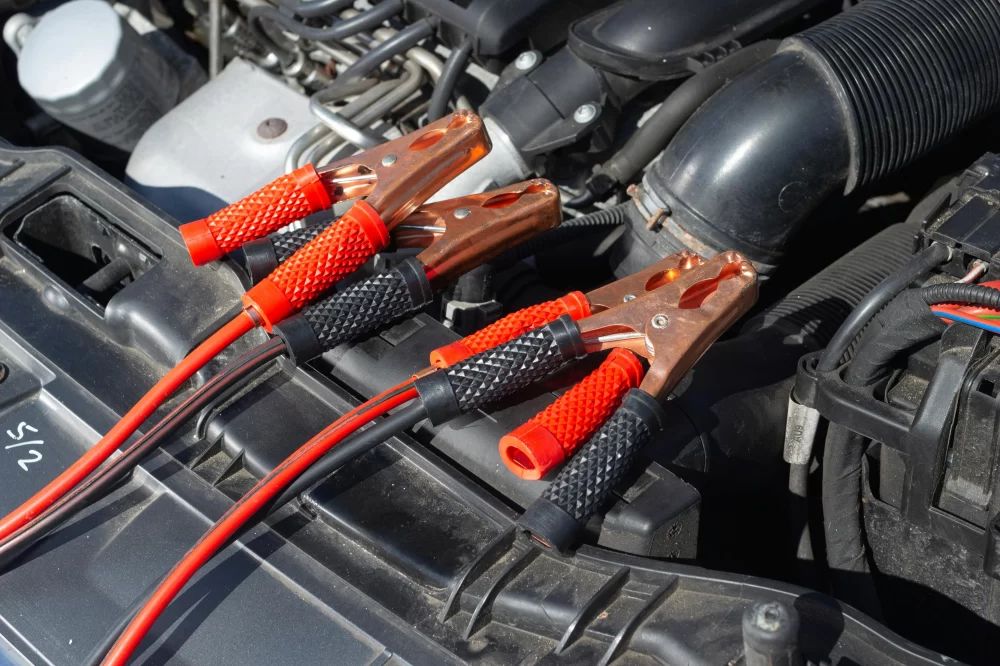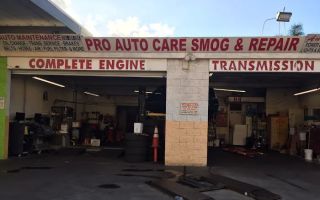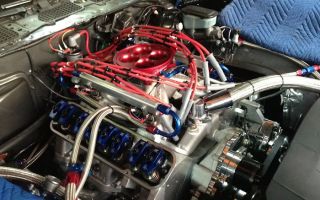How to Identify and Solve Car Electrical Issues
Car electrical problems can be incredibly frustrating. Whether it’s a flickering dashboard light, a dead battery, or an electrical short that leaves you stranded, these issues can make even the most reliable car seem like a ticking time bomb. I’ve been through my fair share of electrical issues, and I know firsthand how important it is to identify and fix these problems before they spiral out of control. Over the years, I've learned that diagnosing and solving car electrical problems doesn't have to be overwhelming. With some basic knowledge and troubleshooting steps, you can often fix these problems yourself or at least know when to call a professional.

Craig's Auto Repair
11037 Stranwood Ave, Mission Hills, CA 91345, USA
Common Car Electrical Problems You Might Face
The first step in solving an electrical problem is understanding what might be causing it. Car electrical systems are complex, but there are some common issues that many drivers face. These include:
- Dead or Weak Battery: One of the most common reasons your car might not start is a dead or weak battery. Over time, batteries lose their charge and need to be replaced.
- Faulty Alternator: The alternator charges your car’s battery while the engine is running. If it fails, your battery will not be charged, and your car will lose power.
- Blown Fuses: Fuses protect your car’s electrical circuits. If a fuse blows, certain systems in your car (like lights, radio, or air conditioning) may stop working.
- Worn-Out Wiring: Over time, wires can become frayed, corroded, or disconnected, causing electrical shorts and power loss.
- Faulty Sensors or Relays: Many of the electrical components in your car are controlled by sensors and relays. If these malfunction, it can lead to issues with things like the fuel system, engine management, or climate control.
Steps to Diagnose Car Electrical Problems
Now that you know some of the most common electrical problems, let's go over the basic steps to diagnose them. I’ll walk you through how I would approach these issues based on my own experience and some tried-and-true troubleshooting methods.
1. Check the Battery
The first thing I always check when I have an electrical problem is the car battery. A weak or dead battery can cause a variety of electrical issues, including failure to start the car or dimming lights. If your car is having trouble starting, the battery is the most likely culprit.
Here’s what I do:
- Check for corrosion around the battery terminals. If you see any white powdery substance, it could be corrosion, which can prevent proper electrical flow.
- If the terminals are clean, try testing the battery voltage with a multimeter. A healthy battery should read about 12.6 volts when the car is off and around 14 volts when the engine is running.
- If the battery is low on charge, try jump-starting the car. If it starts, there’s a good chance the battery is bad and needs replacing.
2. Inspect the Alternator
If the battery is fine, the next thing to check is the alternator. If your alternator isn’t working properly, the battery won’t charge, and you may notice that the car starts to lose power or the lights dim when you're driving. I’ve been in this situation before, and trust me, you don’t want to ignore it.
Here’s how I check the alternator:
- Start the car and check the battery voltage again. If it’s below 13.5 volts, the alternator is likely not charging the battery properly.
- If you notice strange noises coming from the alternator, like squealing or grinding, it could be a sign that the alternator bearings are damaged.
- Another way to check is by turning on the headlights. If they become brighter when the engine is revved, the alternator may be working. If they don’t change, the alternator might be the issue.
3. Check Fuses and Relays
Blown fuses are another common cause of electrical issues in cars. I’ve been in situations where a single blown fuse caused a critical system, like the dashboard lights or air conditioning, to stop working. Fortunately, checking fuses is simple and usually a quick fix.
Here’s how I inspect fuses:
- Locate the fuse box in your car. Most cars have one under the dashboard or in the engine compartment.
- Look for any fuses that appear blackened or broken. A multimeter can also be used to test continuity through the fuse. If the fuse is blown, it will need to be replaced.
4. Inspect Wiring and Connections
If none of the above steps reveal the issue, I always check the wiring. Worn-out or corroded wires can cause electrical shorts, which lead to various problems like malfunctioning lights or a car that won’t start.
Here’s what to look for:
- Check for any exposed wires or areas where the insulation has worn away.
- Inspect any connectors or plugs for corrosion or loose connections.
- If you suspect a short, trace the wiring as much as possible and look for any spots where the wire might have come into contact with metal parts, causing a short circuit.
A Personal Story: The Day My Car Electrical System Failed
I'll never forget the day my car’s electrical system failed while I was driving. It was a hot summer afternoon, and I was on my way to a meeting when my air conditioning suddenly shut off. Then, the dashboard lights started flickering. I could feel the car losing power. At first, I panicked. I had no idea what was going on. But then I remembered all the times I’d read about electrical issues in cars and how important it was to stay calm and troubleshoot the problem.
After pulling over safely, I followed the steps I just mentioned. I checked the battery and noticed the terminals were corroded. A quick cleaning and a new battery later, I was back on the road. If I hadn’t known how to diagnose and solve the issue, I might have had to call for a tow, which would have cost me a lot more time and money.
Since then, I’ve made it a habit to regularly check my car’s electrical system. It only takes a few minutes, but it can save you from a major headache later on. And if you ever find yourself stuck with an electrical problem, don’t hesitate to reach out to us at Rescue & Towing for the best recommendations and towing services available!





























